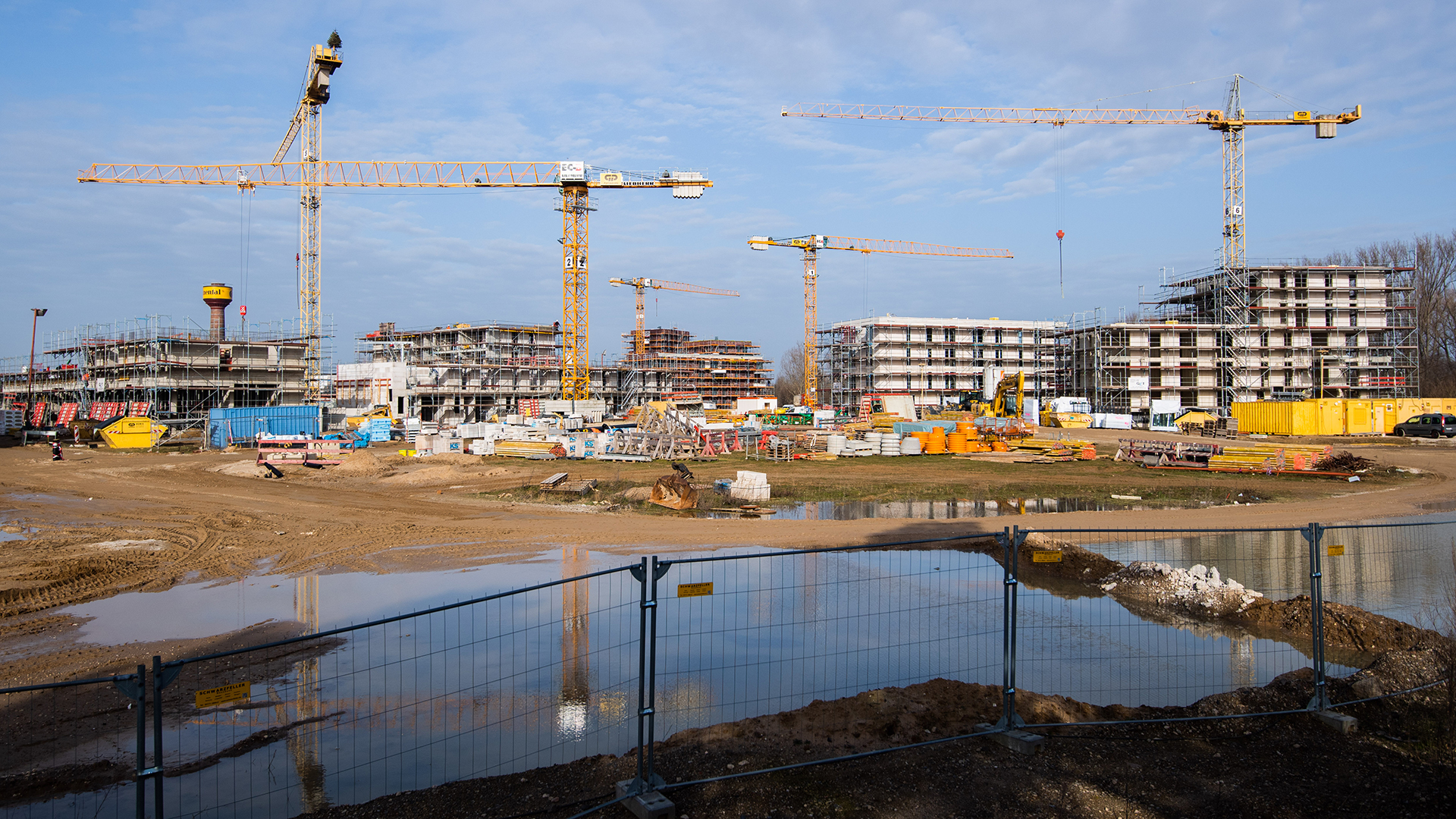Real estate market in Europe Construction is not booming everywhere
Status: 16.06.2021 2:01 p.m.
Construction is one of the boom industries in Germany even during the crisis. But what about in other European countries? Our correspondents report that the situation there is only partially comparable.
Poland: increasing demand, increasing prices
By Jan Pallokat, ARD studio Warsaw Anyone in Poland who thought that the corona pandemic would slow down the construction industry, which has been booming in the country for years, was caught on the wrong foot at the beginning of the year. Housing construction in particular is buzzing even more; In the first quarter, developers in major cities sold 40 percent more than in the previous year and three percent more than in the previous record year of 2017. And because the supply of modern living space still lags behind demand in the country, the sales prices achieved are also rising steadily: on average by almost eight percent for new buildings and six and a half percent for used residential property. The rising prices for building materials and an increasing shortage of staff also play a role here. Because construction workers are scarce, market experts are now warning that construction sites could be paralyzed in rows during the high season in summer. The downside of the building boom: home ownership is often unaffordable for young families. Already today, 43 percent of under 35-year-olds in Poland lived with their parents, the Eurostat statistics office recently reported. This puts Poland in the top group in the EU when it comes to “Hotel Mama” and is on a similar level to Italy.
Spain: no construction boom in sight
By Reinhard Spiegelhauer, ARD studio Madrid Construction boom and Spain – wasn’t there something? Yes, Spain has actually experienced an absolutely ludicrous construction boom – but that was 20 years ago. In the nineties and noughties, the number of planned apartments practically doubled from year to year – up to the highest level in 2006 with almost 900,000 apartments. Then came the big bang: the real estate bubble burst, banks had to be bailed out, Spain rushed past bankruptcy, hundreds of thousands could no longer service their real estate loans, apartments were evicted. The market then recovered very slowly. But still, roads, lamps and park benches built in boom times are rotting in many development areas. In 2019, the year before the corona pandemic, the foundation stones were laid for a good 100,000 apartments. Since then, however, the sector has largely been paralyzed again. Unemployment fell again after peaking at around 25 percent after the euro crisis, but it again reached 15 percent during the pandemic. For young adults it is more than 30 percent. According to experience from the times of the real estate bubble, far stricter criteria now apply to the granting of loans. All of this is currently preventing any kind of construction boom in Spain.
Switzerland: mainly redevelopment and densification
By Dietrich Karl Mäurer, ARD studio Zurich Instead of a “construction boom”, the umbrella association of the Swiss construction industry, Building Switzerland, speaks of “continuously good work”. A large part of the orders are so-called consolidations and energy-efficient building renovations. But not least because of the low interest rates, large investors like to invest in construction projects such as new building complexes with rental apartments. The demand is good, although there are vacancies in some rural regions. Housing is still in short supply in cities. This is also because net immigration has recently risen again; During the pandemic, many foreigners who actually wanted to leave the country after a certain period of time in Switzerland preferred to stay – mainly because of the comparatively difficult labor market conditions in their home countries. The construction industry accounts for ten percent of Switzerland’s economic output and employs around half a million skilled workers. According to a recent economic survey, the situation in the construction industry is stable. However, the limited availability of building materials and preliminary products could become a problem. Incidentally, real estate prices in Switzerland have risen faster than they have been in eight years.

You must log in to post a comment.